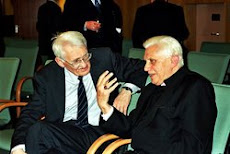I am bringing together two clusters of ideas I think are important. One is the thought of the German writer Jürgen Habermas, a prominent philosopher whose ideas are meaningful to many of our colleagues who are what I’ll call “planning academics,” that is scholars who teach planning in universities. The other is a cluster of ideas on social capital and social networks.
Habermas is a contemporary philosopher with a worldwide reputation. One of his best-known ideas is communicative action, in which actors in society seek to reach common understanding and to coordinate actions by reasoned argument, consensus, and cooperation rather than strategic action strictly in pursuit of their own goals (Habermas, 1984, p. 86). However, it’s not only his general fame that makes him relevant to social capital and networks. There are other reasons more specific to geography and regional science. One is that many geographers, sociologists, and
planning theorists appeal to his ideas in their work (though not many economists do). Prominent examples are scholars who apply Habermas’s ideas to a general (but not Marxist) critique of late capitalist societies, to analysis of mass movements, and to normative assessments of planning practice . . . ."
download full paper from here
Related post
Subscribe to:
Post Comments (Atom)





No comments:
Post a Comment